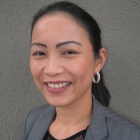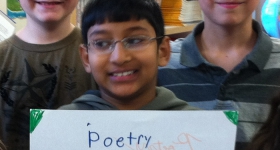Illustration by Jerry Ma
Arthur Chu is a badass. He is quite articulate over the phone, and he speaks with great confidence and conviction. He is intelligent, but never patronizing. He laughs graciously at your semi-funny comments. He patiently waits for you to complete your thoughts. And above all, he is genuine – keenly self-aware and honest about himself. And guess what – he’s won over $100,000 on Jeopardy, suckas!
So why the vitriolic press he’s been getting since his fourth Jeopardy win?
Well, for starters, he plays aggressively, using his brand of “game theory” as it has now been widely called. He hits the buzzer repeatedly to answer a question, he interrupts Alex Trebek, he breaks convention by jumping all over the board when selecting questions to find the daily double (he was already told by producers to stop because it throws off the order of Trebek’s question cards. But guess who’s not listening), and he doesn’t bother with being friendly. He’s there to win the game, and all his haters can just F the hell off.
“I pushed myself really hard […] I became a Jeopardy machine, and that’s probably why I acted weird when I was at that taping," says Chu. I told myself that as long as I have confidence that I’m doing the right things and making the right choices […] as long as I did everything I could to win the game and controlled everything that was under my control, I can walk out of there with my head high.”
What sucks in a really evil way is that many viewers of Jeopardy are hating on Arthur and making racist, offensive comments (surprise, surprise!), hurling just about every insulting Asian stereotype at him, most frequently on Twitter. I ask if he thinks it’s because he defies people’s expectations of the “meek and humble Asian,” and he says: “To some degree I think I’m unfortunately living up to a certain Asian stereotype – Asians are supposed to be very nerdy, very competitive in academics and I was raised in that sort of environment. […] They would have reacted differently had it been somebody else. A lot of what they say about me, ‘this guy is creepy,’ ‘this guy is a robot,’ ‘this guy is flat and emotionless’ you can’t deny that it’s there, but I try not to fixate on it. ”
And instead of laying low in the hopes that the hating will eventually go away, Chu asserts himself and responds to the nasty comments on Twitter. In one case, he responded with “The next time you realize you won $37,500, we’ll see how humble you are.” Chu says: “I think the big part of the fact that I can show a different side of myself on Twitter to an extent defies people’s expectations […] it’s easier for me to do it online than on camera. They imagine that I must be this one-dimensional nerd who’s only good at Jeopardy. […] [B]ut you can’t assume that about anybody when you only watch them for 20 minutes on a game show where it’s about winning. […] And I think that [talking back] was a big part of humanizing me to people who were watching Jeopardy and making a different kind of narrative out of it.”
Chu explains very well why he is how he is. It's rare to find a person as intelligent as he is self-aware, and in reality, Chu comes off as a really good guy. “I spent a lot of my life unwilling to take chances and I think that’s a common story for kids who kind of grew up with a certain kind of tiger mom upbringing […]. “ [B]ut at this point in my life, I’ve learned a lot of things will never happen to you if you never take the risk, and failing is not as painful as it seems, the pain you imagine from failure is actually a lot worse than the actual experience itself.”
But despite the negative reactions, Chu has been enjoying himself by celebrating with his family. “My mother was pretty overwhelmed and said it was impossible that one can earn $100,000 for one day’s work (Jeopardy tapes a week’s worth of episodes on only one entire day), but she was also very proud. My brother and sister have been going crazy, I call my sister my press secretary because she forwards me every new article she discovers. My dad is actually overseas right now in Taiwan and tries as much as he can to watch me on the internet. So it’s been the greatest thing to happen to my family for some time.”
Once he finally gets his check (Jeopardy winners don’t receive their checks until their last game), Chu plans to donate to fibromyalgia research and visit China. Fibromyalgia, which Chu’s wife suffers from, is a central nervous disorder that causes intense pain in the muscles and joints, as well as extreme fatigue and difficulty with sleeping. “[My wife] came down with it in college, it seriously impacts her, and it’s one of those things that’s not talked about very much. It doesn’t have an obvious physical manifestation – you look fine, you just feel like crap all the time, and that leaves a lot of people to say ‘it’s all in your head,’ ‘it’s just depression,’ ‘it’s not real,’ and that’s very frustrating.”
Growing more intense as he describes the illness and a hope for a cure, there is no doubt that Chu keeps the cause of fibromyalgia research close to his heart. He is currently researching charities and deciding where to donate.
He also wants to visit China. He’s visited Taiwan a few times but wants to travel to the mainland where his parents are from: “I would like to spend time there and get to know relatives and where my dad and mom grew up. […] I’d like to go there with my wife who’s never been. I thought that would be something far in my future and now maybe it’s sooner.”
Chu’s next Jeopardy game will air on February 24. Tune in, cheer him on, and join him in telling off the naysayers.










Comments